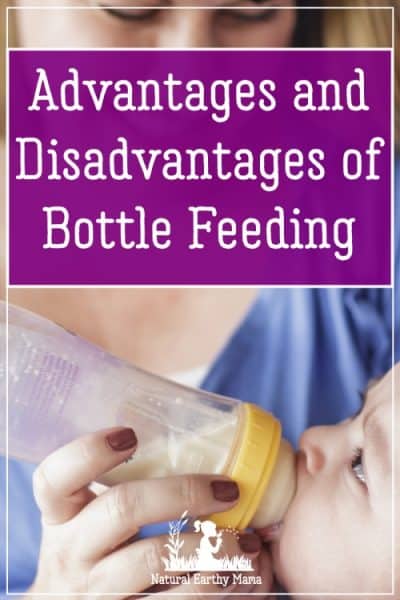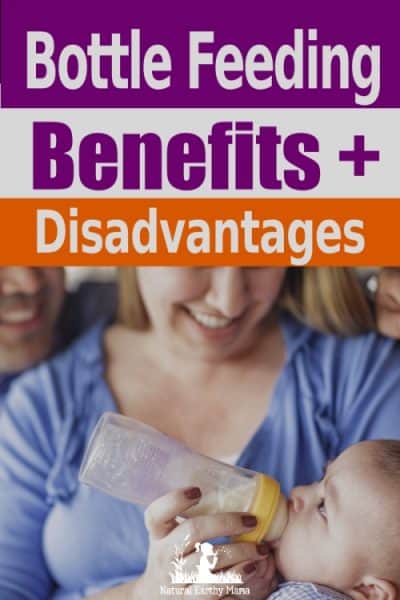 There is a lot of guilt around the topic of bottle feeding babies. Bottle-feeding can happen with two kinds of milk. The first is breastmilk, and the second is formula milk.
There is a lot of guilt around the topic of bottle feeding babies. Bottle-feeding can happen with two kinds of milk. The first is breastmilk, and the second is formula milk.
The main idea behind feeding your baby is making sure that your baby is in good health, whether you do breastfeeding or bottle-feeding. A growing, fed baby is what we are looking for, there is to be no guilt here mama!
Please read: This information is provided for educational purposes only and is not intended to treat, diagnose or prevent any disease. We encourage you to make your own health care decisions in partnership with a qualified health care professional.
This post contains affiliate links, this means at no extra cost to you, we make a commission from sales. Please read
our Disclosure Statement
This article specifically goes into the benefits and drawbacks of bottle-feeding in particular. Keep reading to learn more.
What are the Advantages and Disadvantages of Bottle Feeding your Baby?
Advantages to bottle feeding your baby
1. Anybody Can Feed The baby
Bottle feeding means anyone can feel the joy and bonding experience of caring for a child. There’s also no worries if mom is ill, sleeping, tired, or unavailable.
Mothers that get sick might pass the illness on to a baby if they are breastfeeding, but that can’t happen with bottles.
2. No Stress Over Milk Production
Some mothers have to resort to bottle-feeding just because their body can’t make enough milk. When bottles are used to supplement or even replace breastmilk, then you can know your child has enough.
RELATED: 5 Surprising symptoms of low milk supply
3. Easy Feeding in Public Spaces
There are times that someone breastfeeding in public might be embarrassing to the mother and even make her anxious.
In such situations, it can be better to bottle-feed. This lets a mom feed her baby without exposing herself or having to head to a private area, or worse – feed sitting on a public toilet!
4. Allergies Or Lactose Intolerance
It’s rare when infants can’t process animal milk of any kind, including breast milk. However, it does happen, and it’s called lactose intolerance.
Some supplement formulas are made with no milk content whatsoever. Soy protein is the common alternative.
5. Convenience
Bottle-feeding lets you feed your baby effectively, easily, and at any time. You don’t have to go through uncomfortable and time-consuming troubles involved with breastfeeding.

6. No Need To Alter Mom’s Diet
Any mother that feeds her baby using formula milk won’t have to stress over her diet. She can drink or eat whatever she wants since her child isn’t dependent on her.
RELATED: Foods to avoid when breastfeeding
7. You Know How Much They’re Having
If you breastfeed, it’s nearly impossible to know this. Feeding with a bottle gives you the option of specific measurements of volumes.
Disadvantages to bottle feeding your baby
1. Interfering With Mom’s Bonding
While some bonding will happen with bottle-feeding, there’s no replacement for the sense of comfort a baby has while latched on to the breast of his or her mother.
2. Lower Immunity
Studies have shown that breast milk can help the baby’s immune system. Formula milk simply doesn’t have the elements that breastmilk has which can help the baby grow their immune system.
Formula-fed babies even carry higher risks of specific illnesses such as diarrhea, and infections in their ears, chest, or urine.
3. Expense
You’ll have to buy a bottle and the nipples. You’ll also either have to buy formula milk routinely or invest in some kind of effective breast pump, if not both.
Either way, bottle-feeding gets added to the family monthly budget.
4. Preparing Bottles
Breastfeeding can happen with a baby right on demand free of any preparation. However, with bottle-feeding, you’ll have to get the milk prepared in advance.
The bottle will have to be washed and sterilized frequently. Bottled milk has to get stored at the right temperature.
Cold milk has to get warmed before the baby is fed, and without adequate sterilization, bottle-feeding can have many draw backs.
5. Poorer Nutrition
Breast milk is known to have an ideal balance of the nutrients a baby needs to grow up healthy. It’s also easier to digest. There’s even an increased risk of early childhood obesity with formula milk.
6. Travel Inconveniences
You’ll have to carry clean nipples, bottles, formula, and many other necessities wherever you and baby go. This can mean frequent trips to stores or restaurants. It can be a hassle to keep up with everything when you have a baby to handle.
Bottle-feeding clearly has advantages and disadvantages. You should weigh the pros and cons of doing this before you choose how you’re going to feed your baby.
Whatever you do, the emphasis should always be on giving your baby the nutrition he or she needs for healthy growth in the earliest stages of life.
As with any decision you make in your early mommy days, get the opinion of your doctor and rely on the experiences and advice of other mothers you’re learning so much from right now.
